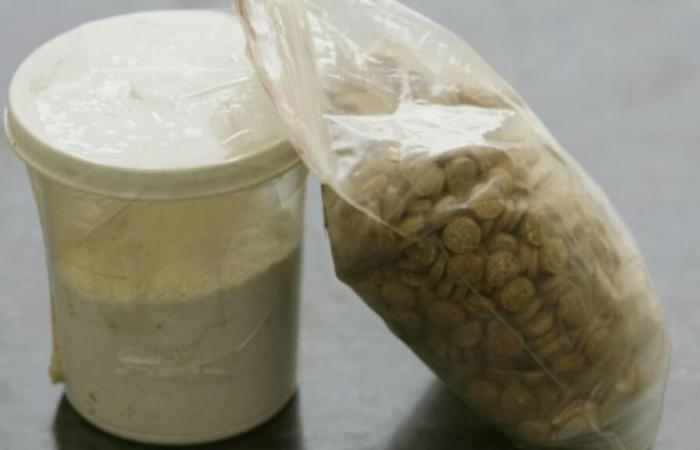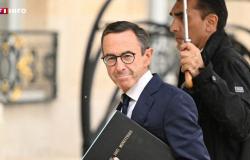AFP Videos – France
Top EU representative expected in Damascus to meet new leaders
The European Union is sending a high representative to Damascus on Monday to meet the leaders of the new Syrian power, dominated by Islamists, with whom foreign chancelleries are increasing contacts, a little over a week after the fall of Bashar al-Assad. On December 8, a rebel coalition entered Damascus and announced the overthrow of power, after a dazzling offensive which allowed it to seize a large part of the country in eleven days. Abandoned by his Iranian and Russian allies, Mr. Assad fled to Moscow. Initially cautious, foreign chancelleries have redoubled their efforts in recent days to establish ties with the new Syrian leaders, including Abu Muhammad al-Jolani, the leader of the radical Islamist group Hayat Tahrir al-Sham (HTS), spearhead of the rebel offensive. “Our high representative in Syria will go to Damascus today,” announced the head of European diplomacy, Kaja Kallas, on Monday. “We must first discuss the level of our engagement with the new Syrian leaders, then the type steps we are prepared to take to establish relations with them,” she told the press. She stressed that the EU will judge on actions “going in the right direction”, not just promises new authorities. Arriving in Damascus on Sunday, the UN special envoy for Syria, Geir Pedersen, met Mr. Jolani to whom he stressed the need for a “credible and inclusive” transition, his services indicated. Uni also indicated on Sunday that it had established “diplomatic contacts” with HTS, the former Syrian branch of Al-Qaeda which claims to have broken with jihadism but which remains classified as “terrorist” by several capitals. Western countries, including London and Washington. The United States, for its part, indicated on Saturday that it had established “direct contact” with HTS and France announced that it would send a diplomatic mission to Damascus on Tuesday, the first in 12 years, to ” establish first contacts” with the new authorities. Neighboring Turkey, a major player in the conflict in Syria and support of the new authorities, reopened its embassy in Damascus on Saturday, saying it was “ready” to provide military aid if the new Syrian government asked. – “We need peace” -Several countries and organizations had welcomed the fall of Assad, saying however they were waiting to see how the new authorities, Sunni Muslims, would treat the minorities of the multi-ethnic and multi-religious country. After 50 years of undivided reign of the Assad clan, and implacable repression against any opponent or presumed such, the new authorities are working to reassure the international community. The new Prime Minister in charge of the transition until March 1, Mohammad al-Bashir, promised to “guarantee the rights of all”, as Syrians try to return to normal life. In Latakia, Syria’s second port on the Mediterranean, hundreds of men and some women members of the former forces government officials lined up on Monday for more than 200 meters outside offices where the new authorities asked them to come and surrender their weapons and register. According to the site manager, Mohamad Mustapha, 26, a former soldier from Idlib, a rebel stronghold, 400 people showed up on Sunday when the center opened. “We are expecting at least a thousand today,” he said. he told AFP, estimating that “at least ten thousand ex-soldiers and police officers” should “present themselves” in this bastion province of the Alawite minority, from which the deposed Syrian president comes. calm, those concerned return pistols, automatic rifles, magazines and grenades, then are registered. The new authorities will carry out investigations “into their past”, explains Mohamed Mustapha. “In the event of a serious crime, they will be transferred to justice.” “We need peace, not new fights,” confides to AFP Mohamad Fayoub, 37, police officer in Hama (center) for ten years and originally from Latakia, who showed up spontaneously after seeing the notice on social networks. – Israeli strikes – Nearly 14 years of civil war triggered by the repression of pro-democracy demonstrations have left a heavy toll in Syria, half a million dead and six million inhabitants having fled abroad. In this context of reorganization of a devastated and fragmented country, the Israeli neighbor carried out intense strikes during the night from Sunday to Monday on military sites in the coastal region of Tartous, including air defense units and “depots surface-to-surface missiles”, according to the Syrian Observatory for Human Rights, OSDH. According to the NGO, these are the “heaviest” Israeli strikes “since 2012” in this region, which is home to a Russian naval base, while the Israeli army says it wants to prevent Syrian weapons from falling into the hands of extremists. Israel also approved on Sunday a project aimed at doubling the population in the part of the Syrian Golan that it occupies and annexes, but says it has no interest in entering into conflict with Syria, after having taken control of the buffer zone monitored by the UN separating the two countries on the Golan Heights. These actions “seriously harm the efforts to establish peace and stability in Syria”, the Turkish Foreign Ministry lambasted on Monday, calling on the international community to “react”. Israel conquered part of the Golan, in southwest Syria, during the 1967 Arab-Israeli War, and annexed it in 1981. Only the United States, during Donald Trump’s first term, recognized this annexation in 2019.bur-anr/cab






